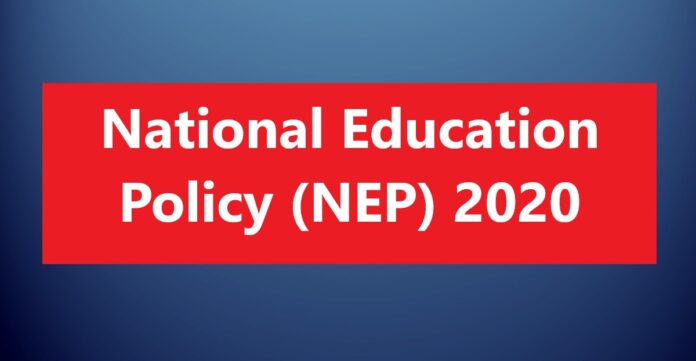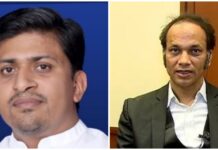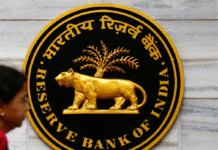The approval of the National Education Policy – 2020, has resulted in a much-needed debate, analysis, and critique. However, the first document that was circulated in the educationists’ and activists’ circles was not the one approved by the cabinet.
It was only later, after the demands by educationists that the Ministry of Human Resource Development (soon to be Ministry of Education) uploaded the final policy that was approved by the cabinet on the website on 30th July 2020.
Any analysis at this stage over the National Education Policy is around the 60- page document is only preliminary given that the document was released only recently. A few quick notes before we can undertake a detailed analysis of the National Education Policy is as under:
NEP proposes Centralization of Education System
The National Education Policy – 2020 has proposed a new set of regulatory authorities that aims to diminish states’ autonomy and power on the matters of education. It has proposed the establishment of a new Teachers’ Training Authority to regulate the teaching profession of the country. This would mean that the states cannot change the rules in accordance with their needs. This is in contradiction with the Vision of Constitution which places the subject of education under the ‘State List’.
Higher Education
National Education Policy – 2020 is silent regarding the government’s role in higher education. The Birla-Ambani report had planned to hand over the sector of Higher Education to private players. Notably, there won’t be any support system for the marginalized sections. Once implemented it would deny any chance that marginalized sections might have to benefit from higher education.
Allowing foreign universities to open up establishments again supports the idea of privatization of Higher Education as these universities treat education as a commodity and reduce it to a supply-demand type market system. This would mean the end of the road for students hailing from Dalits, Adivasi, and marginalized communities.
The National Education Policy – 2020 document does not speak about the threats to democracy in university campuses. It also does not address the issue of scholarships for Dalits, Adivasis, and Marginalized communities.
A major change that is rolled out by the current policy is the restructuring of the Bachelor’s Degree as a 4-year course. This would pressurize the students of Medical and Veterinary subject to study a vast set of the curriculum within a period of 4-years. Also, the idea of creating multiple entries and exit from any course that is floated around. This is harmful and would disturb the students’ selection processes and leads to inconsistencies.
In any graduation course, if students are able to complete only one year of study, then they will be awarded a basic certificate. A Diploma certificate is awarded if students complete 2 years of study. On completion of the 4-year course, they are awarded a Degree Certificate. The idea is that no year of study by any student must go wasted if they discontinue the course in between. However, this will only mean a wastage of knowledge. What would the student gain in terms of knowledge? Where and How would they fit into the job market? These are important questions that remain unaddressed.
The National Education Policy – 2020 will also be the end of Government colleges as they are neither prepared nor equipped for the ‘liberal arts model’ supremely emphasize. However, the liberal arts-oriented courses in private institutes will be priced high. The Policy document claims to be focussing more on practicals and application of knowledge, but it is silent about how the Government colleges which are suffering at present with no hands-on training whatsoever would be empowered.
The Credit system adopted for Under-Graduate and Post Graduate courses will trap the students in the Education Loan Mafia. The course fees will be decided by a single authority with a fee capping on each course irrespective of the quality of education provided. This will be a total tyranny ruling. This will kill democratic voices that demand fee reductions and free education for students from marginalized sections.
School Education
The policy does not talk about empowering and uplifting government schools. It does not specify the mechanism that would be adopted for strengthening the public education system in the country.
Wherever possible, the mother tongue or official language of the state must be adopted as the medium of instruction. However, similar recommendations have been in place for decades now. In practice, we understand that ‘wherever’ possible only means that ‘it’s nowhere possible’. The last sentence of the same paragraph contradicts its own recommendations by stating that the Three Language system has already been already rejected by Southern states.
The ‘Vocational Course from 6th Standard’ is a sure shot way to kill the future of children. Students from the marginalized community will never be able to reach the graduate-level education in the guise of vocational education. The policy never speaks about local institutions like Gram Panchayats, Zilla Parishads, School Development and Monitoring Committee in assisting the sector of school education. The document also never gives any guidelines about what should the government actions be.
Views are personal.





























सही आशंकाएं इस लेख में व्यक्त की गई हैं।
What is at the heart of the NEP is launching education, especially pre-primary to 12th standard as a highly profitable commodity to be controlled and managed by the digital technology giants. It is policy that furthers and intensifies privatization started by the previous regimes. Added to this is centralization of power and saffronization of Indian society. The minor changes regarding language and online mode of teaching are only tentative just to bypass resistance from politically illeterate sections of the public.